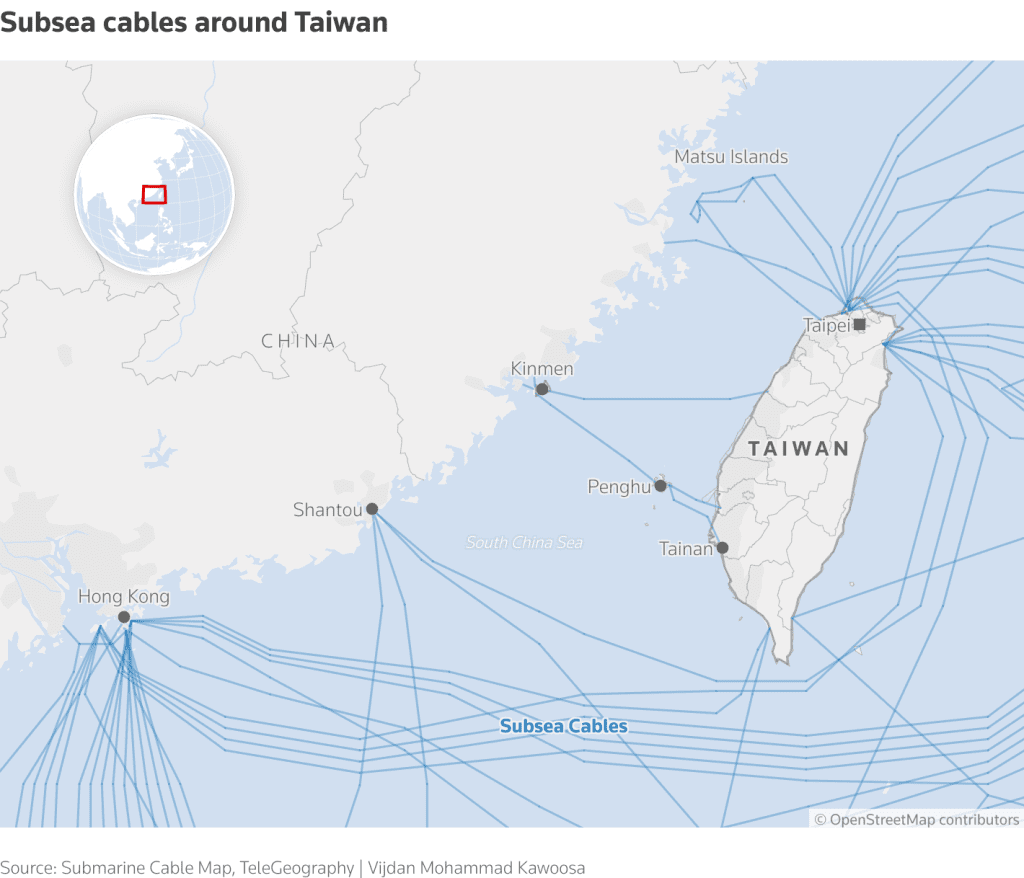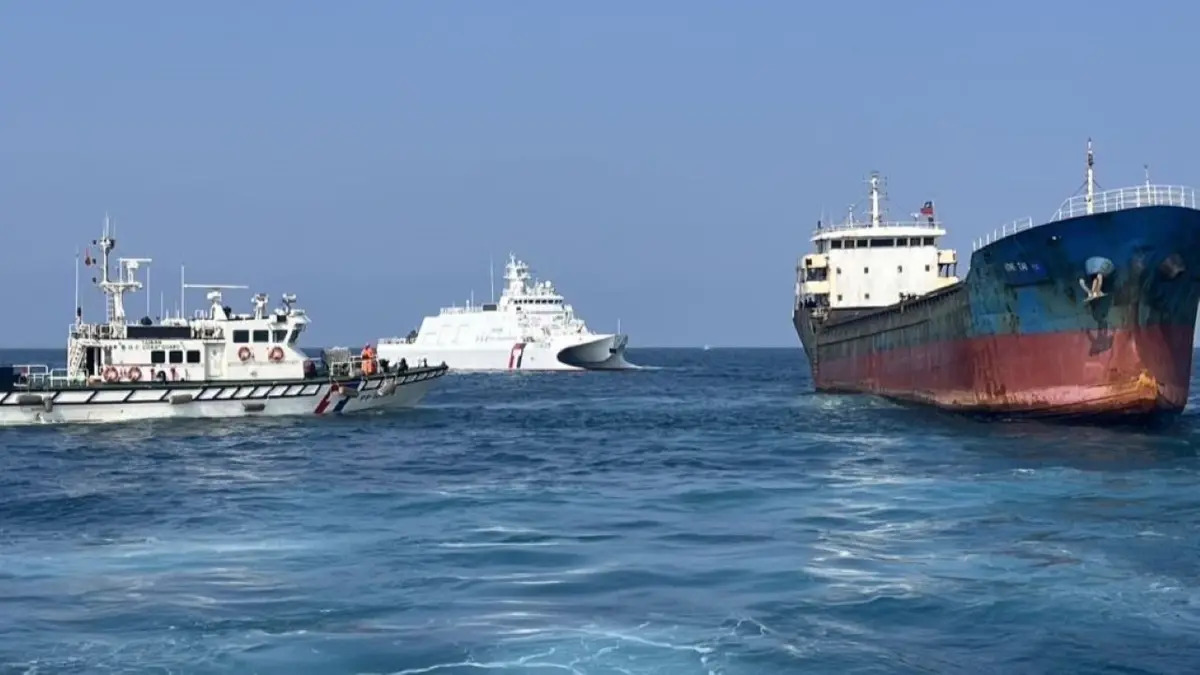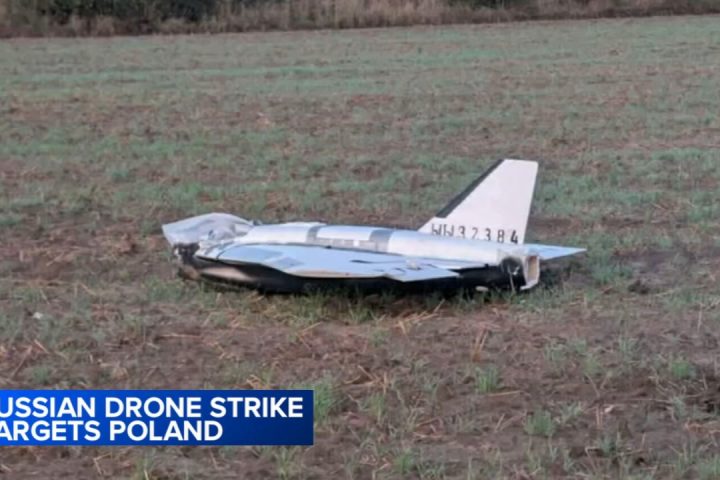Taiwan has stepped up 24-hour coast guard patrols in the Taiwan Strait to protect undersea cables it says are increasingly targeted by China’s “grey-zone warfare.”

These cables, which carry most of the island’s internet and communication traffic, have become a frontline in the ongoing struggle between Taipei and Beijing.
On a recent patrol, Captain Juan Chung-ching guided his 100-ton coast guard vessel toward TP3, an undersea cable that made global headlines earlier this year after a Chinese captain was convicted of deliberately cutting it. Armed with water cannons and an autocannon, Juan and his crew now scan the waters for threats daily.
Undersea sabotage incidents raise alarm
Taiwanese authorities have tied at least two cable-cutting incidents this year to boats linked to China, including one in northern Taiwan. While Beijing has denied responsibility, insisting Taipei is “manipulating” accusations without proof, officials in Taiwan say the threat is real and growing.
“Taiwan ranks among the top countries facing this issue,” Lin Fei-fan, Deputy Secretary-General of Taiwan’s National Security Council, told Reuters. “We are very close to China, and many densely populated submarine cable areas are highly vulnerable to damage.”
The concern mirrors security fears in Europe, where the Baltic Sea region has also seen suspected underwater sabotage since Russia’s invasion of Ukraine in 2022.
High-tech monitoring, stretched resources
Taiwan’s coast guard now operates a layered defense system. Radar operators track suspicious vessels within one kilometer of the TP3 cable, while automated alerts trigger radio warnings and dispatch patrol boats to ward off intruders.
But the task is stretching limited resources. Just eight vessels and around 500 officers must cover both the cable zones and standard maritime responsibilities such as rescue operations and law enforcement.
High on their watch list are 96 blacklisted China-linked vessels, many using flags of convenience to disguise their ownership. In total, Taiwan is monitoring nearly 400 boats, including cargo ships that security officials warn could be converted for military use.
“These ships are like cannon fodder, piles of scrap metal,” said flotilla commander Jenson Chien. “They employ minimal resources to disrupt and sever our connections, sowing unrest throughout Taiwanese society.”
Global intelligence-sharing
To counter the threat, Taipei has begun sharing real-time intelligence on ship movements with allied nations, including what it calls “like-minded capitals.” Officials stress that any sabotage of undersea cables could destabilize not only Taiwan but also global data traffic.
As tensions in the Taiwan Strait remain high, the battle over fragile digital lifelines highlights how modern conflict increasingly blends traditional military threats with cyber and infrastructure vulnerabilities.












